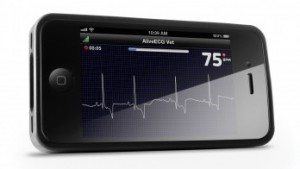On line and remote health advice; how accurate is it and is it worth it. Check out this NY Times article.
When someone has a symptom or series of symptoms, there are quite a number of web sites they can visit to better understand the symptoms they are experiencing. All too often, you may end your search with a sales message, or text book differential diagnosis advice that is mostly worthless without the help and experience of your doctor.
While it is no doubt convenient to cruise the web for answers (and less costly as well) the problem is that your symptoms may not lead you to the right information without important health data taken by your doctor such as your blood pressure, pulse and manual evaluation findings.
This is true for chiropractic visits as well, since the well worn myth of mechanical problems going away on their own is often not true and worse, may lead you down the road to more serious problems years later. A thorough evaluation is the only way to truly come up with a proper diagnosis for back pain which can be caused by the upper back, the lower back, the legs, etc.
Smart phone apps are now the rage as well, but still, there many things these devices cannot tell you about your health.
There are some services that offer triage hotlines however, they, according to a recent study are not very accurate either, and walk in clinic visits can be a mixed bag as well.
Check out this article
Before they see a doctor, most patients turn to websites and smartphone apps.
Caution is advised. Research shows they aren”™t very good.
A few years ago, doctors from the Mayo Clinic tested the wisdom of online health advice. Their conclusion: It”™s risky. According to their study, going online for health advice is more likely to result in getting no advice or incomplete advice than the right advice.
The doctors assessed the quality of advice on the top sites returned from Google, Yahoo and Bing for searches on common health complaints “” like “œchest pain” or “œheadache.”
No site they examined listed all the necessary symptoms so that a user could obtain an accurate triage “” whether to rush to the emergency room, call the doctor or treat the condition at home. A third of the sites did not list any of the key symptoms. Among sites that checked any critical symptoms, four in 10 provided no triage advice.
Even when online symptom checkers suggest diagnoses, they can suggest so many of them that patients are unlikely to be able to deduce which diagnosis is most likely. One study found that older adults could find the correct diagnosis of an illness only half the time using Google or WebMD.
Read more
